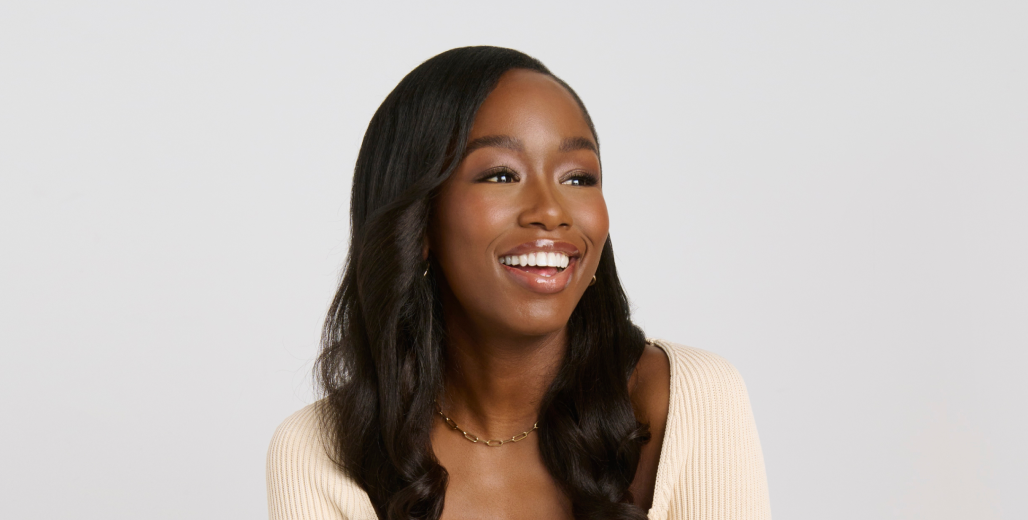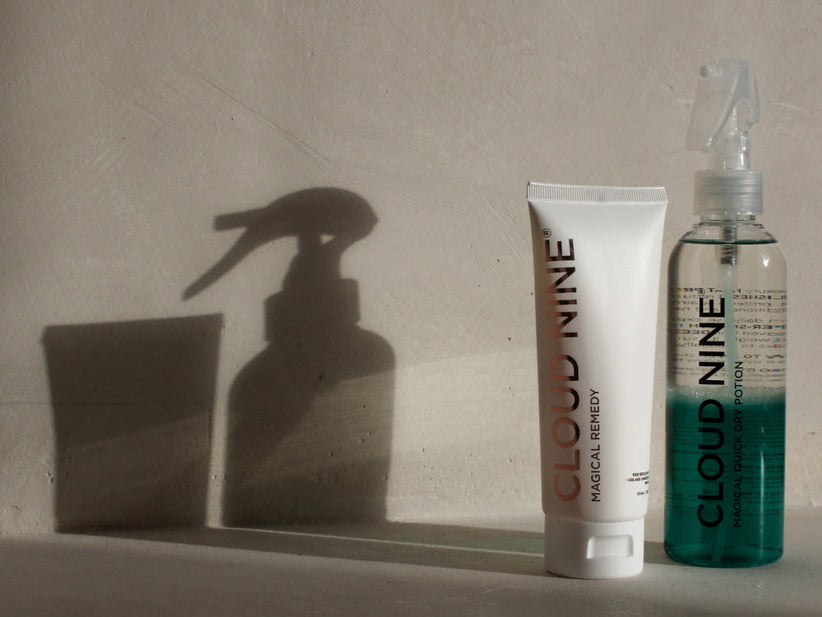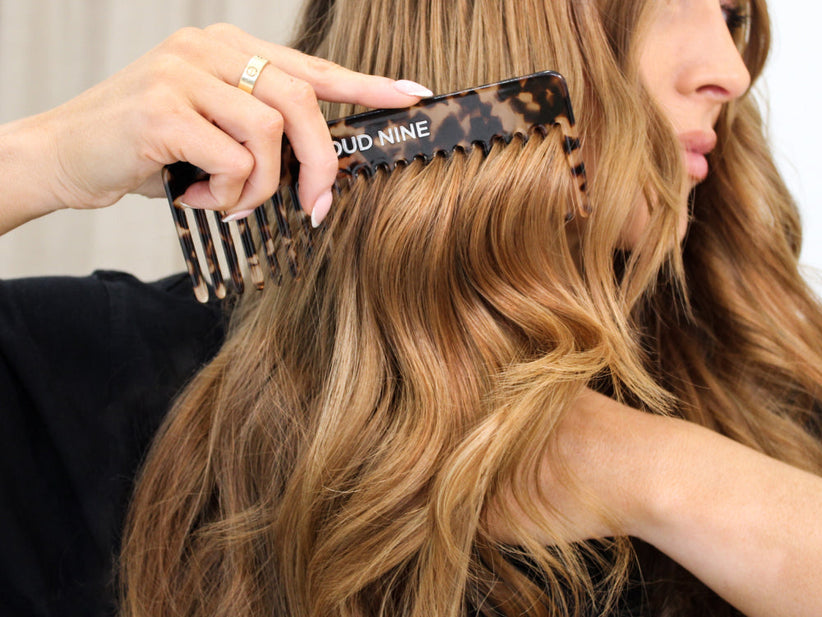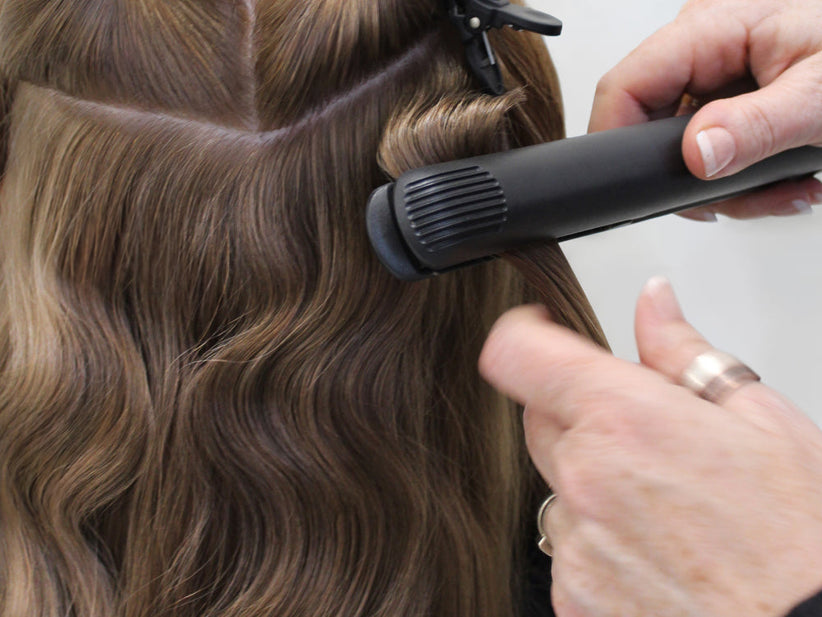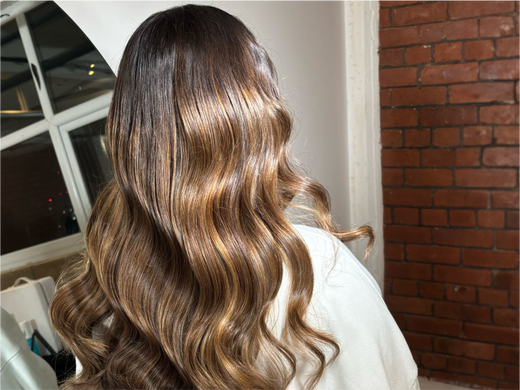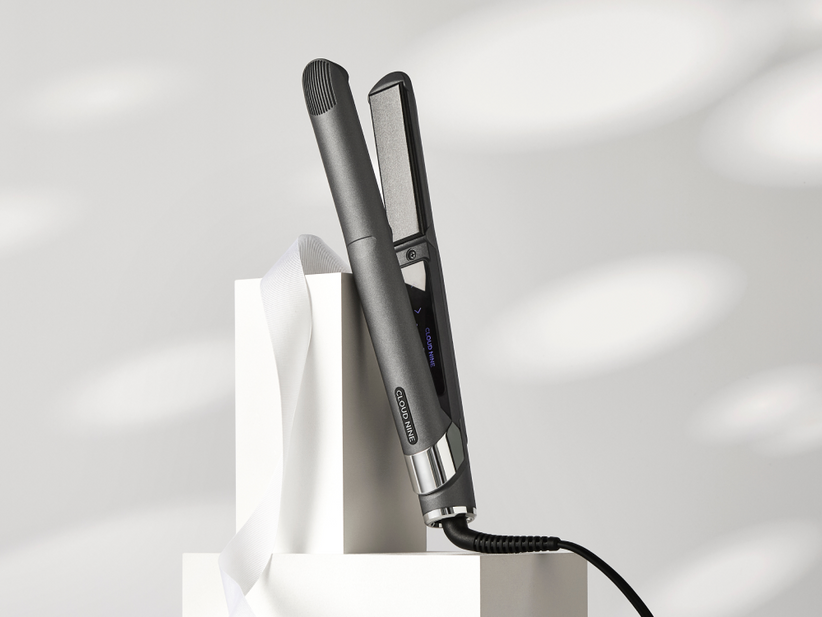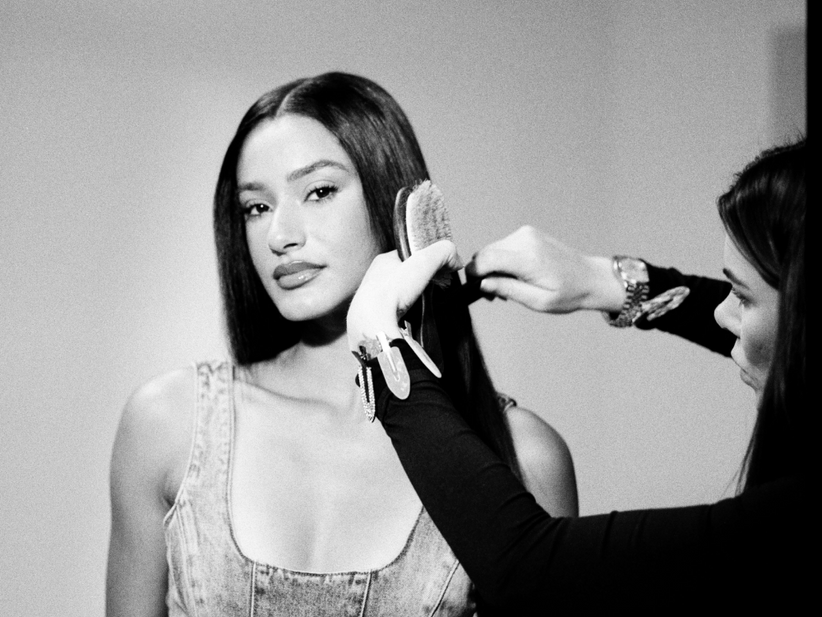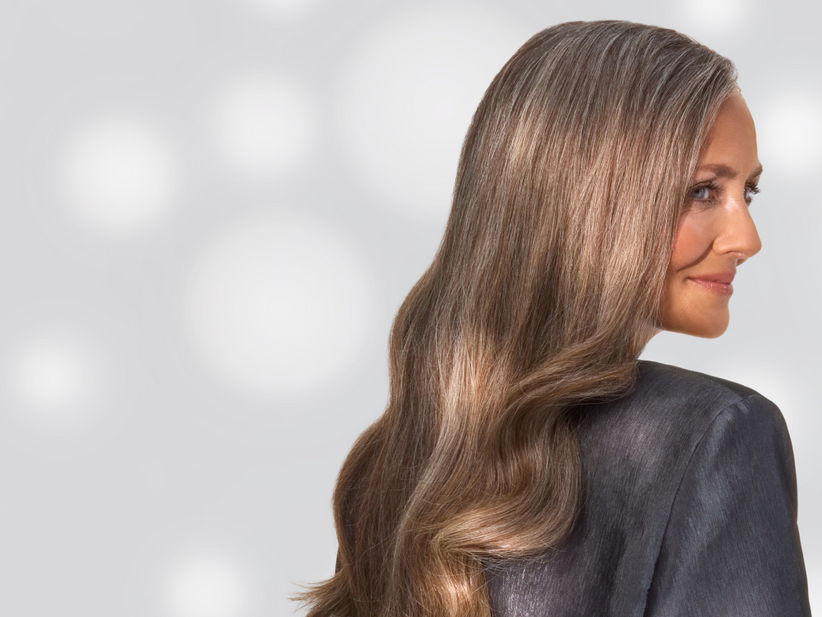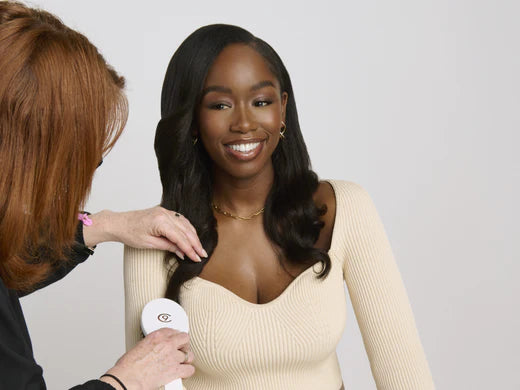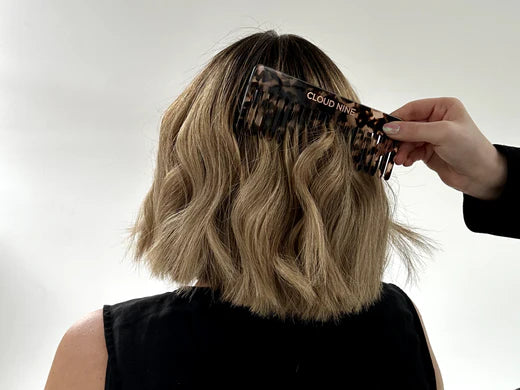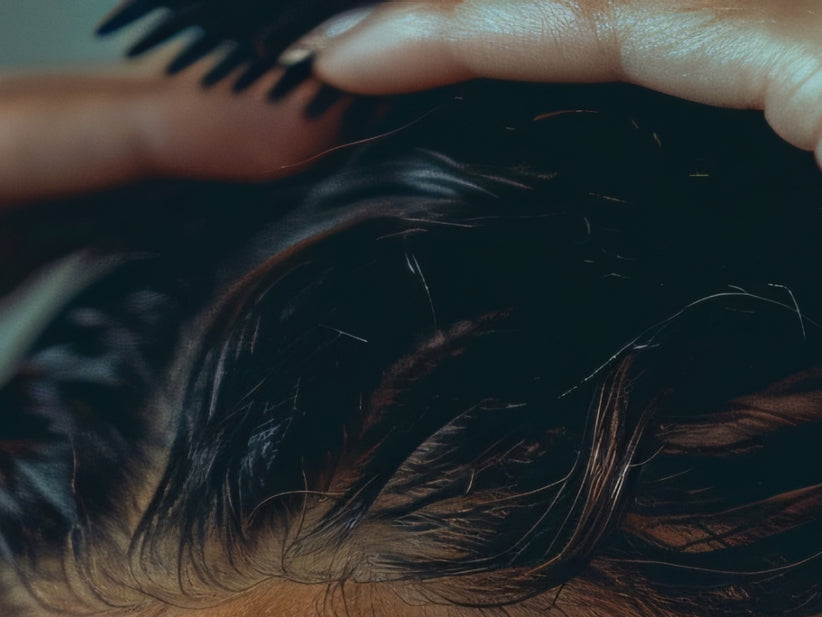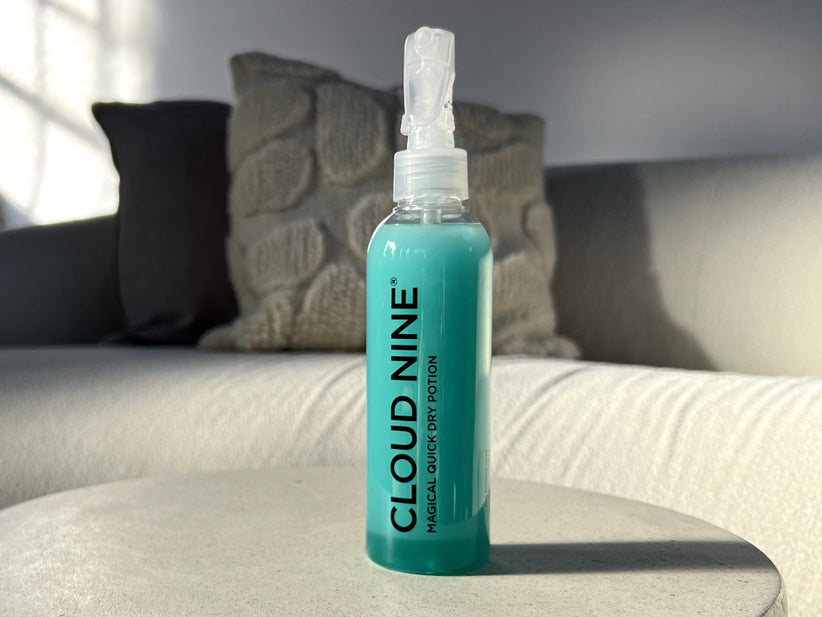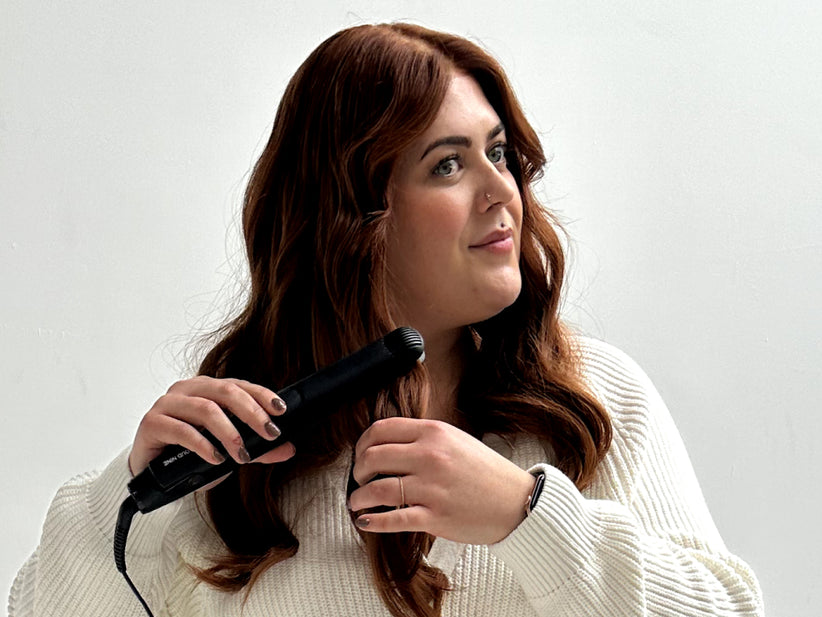If you’ve ever noticed your hair acting differently and wondered what's up, it could be hormone related. Our hair is super sensitive to the ebb and flow of hormones, and things like stress, pregnancy, menopause, or even conditions like polycystic ovary syndrome (PCOS) can cause hormone imbalances. Understanding how hormones affect your hair can help you get a handle on it, so read on for our guide to hormones and their impact on hair health.
If hormones have had an impact on your hair’s texture, you may be styling your hair at a higher temperature than your hair needs. The average person straightens their hair 41.7°C hotter than they need to, so use our Temperature Calculator to work out the optimum temperature for your hair, in its current condition and texture.
HORMONES AND HAIR: KEY TAKEAWAYS
- Hormones like androgens, oestrogen, and thyroid hormones play a key role in hair growth and health.
- Raised levels of androgens (like DHT) can lead to hair thinning and loss, particularly in conditions like male and female pattern baldness.
- Conditions like polycystic ovary syndrome (PCOS) and thyroid disorders can cause changes in hair texture, growth rate, and overall hair health.
- High stress levels boost cortisol, which can disrupt the hair growth cycle and lead to hair shedding.
- Puberty, pregnancy and menopause cause hormonal fluctuations that can affect hair, often leading to temporary changes in hair density and texture.
- A balanced diet rich in vitamins and minerals supports hormone balance and healthy hair growth.
- Managing hair issues often involves addressing the underlying hormonal imbalance through medication, lifestyle changes, or hormone therapy.
- Always seek advice from a doctor to properly diagnose and treat hormonal imbalances affecting hair.
UNDERSTANDING THE IMPACT OF HORMONES ON HAIR
Hormone levels are like a rollercoaster ride, fluctuating throughout the year, and even in response to stress. Everyone's hormone balance is unique, but if you suspect your hormones might be out of tune, then book a chat with your doctor in the first instance.
The hair growth cycle
First, let’s give an overview of the four stages of the hair’s growth cycle and how hormones can impact hair at each phase.
- Anagen (growth phase): This is when your hair is busy growing and can last anywhere from two to seven years. Hormones like testosterone and oestrogen play a big part in determining how long this phase lasts.
- Catagen (transitional phase): Your hair follicles relax during this phase, lasting about two weeks. Hormonal changes can signal the follicles to enter this resting state prematurely.
- Telogen (resting phase): Here, your hair pauses for about three months before it falls out. Hormonal imbalances can disrupt this phase, leading to excessive shedding.
- Exogen (shedding phase): This is when your hair drops out of the follicle and makes way for new growth. Hormonal changes can speed up or slow down this process, which can lead to hair loss or excessive hair growth.
Hormones
Controlled by your body's endocrine system, hormones are responsible for everything from hair growth to mood swings. Imbalances of different hormones can affect your hair in different ways.
Androgens (testosterone and dihydrotestosterone)
Testosterone is the hormone most linked with masculinity. But it plays a key role in hair growth for both men and women. Testosterone gets converted by the body into dihydrotestosterone (DHT), which can either rev up hair growth or cause hair loss from the scalp. An increase in DHT is usually behind male and female-pattern baldness.
Oestrogen
Oestrogen isn't just about regulating your monthly cycle, it also helps keep your hair in tip-top shape. When oestrogen levels drop (for example, around the time of menopause), it can disrupt your hair growth cycle, leading to thinning or bald patches. Oestrogen levels aren't static – they fluctuate throughout your menstrual cycle, during pregnancy, and as you approach menopause. Shedding or changes in hair texture can happen during certain phases of the menstrual cycle or after giving birth when oestrogen levels dip.
Thyroid hormones (thyroxine and triiodothyronine)
Thyroid hormones help regulate your metabolism, and when they're out of balance, it can cause hair loss or even excessive shedding. When your thyroid gland isn't producing enough thyroid hormones, it's called hypothyroidism. With an underactive thyroid, your metabolism slows down, and your body processes – including your hair follicles – start to lag. Hypothyroidism can cause changes in the texture of your hair, making it coarse, brittle, and prone to breakage.
On the flip side, if your thyroid gland is producing too much thyroid hormone, you've got hyperthyroidism. With an overactive thyroid, your metabolism goes into overdrive, speeding up bodily processes, pushing your hair follicles into overproduction mode. While this might sound like a dream if you’re looking to boost hair growth, it can actually lead to hair thinning and shedding. Plus, the hair that does grow may be fine and fragile.
Stress hormones (adrenaline and cortisol)
Stress can wreak havoc on your hair, leading to hair loss or even premature greying. A boost of adrenaline can send your hair follicles into overdrive, pushing them prematurely into the shedding phase of the hair growth cycle.
Cortisol is another key stress hormone, and it lingers after the adrenaline rush has faded, disrupting your body's delicate balance. Chronically elevated cortisol levels can disrupt the hair growth cycle, leading to issues like thinning hair or even hair loss. Plus, cortisol can alter your scalp's oil production, leaving you with a dry, flaky scalp – a breeding ground for even more hair issues.
Insulin
Insulin's job is to make sure that glucose finds its way into your cells, where it can be used for energy or saved for later. Thanks to insulin, everything stays balanced. But insulin isn't just about managing blood sugar levels – it also plays a role in hair growth. Some studies suggest that an insulin imbalance might be linked to hair loss problems like androgenetic alopecia and PCOS. Without the correct amount of insulin, the hair follicles can become inflamed and struggle to function properly, leading to hair loss.
HOW HORMONE CHANGES AFFECT HAIR DURING DIFFERENT LIFE STAGES
Hormones dictate everything from mood swings to metabolism and influence the hair growth cycle throughout our lives. Here’s our roundup of their impact during different life stages.
Puberty
Puberty is a time of awkward growth spurts, acne flare-ups, and hair changes. As hormones like testosterone and oestrogen kick into high gear, they can send hair follicles into overdrive, resulting in oilier hair, increased shedding, and maybe even a complete change in hair texture. While these changes are perfectly normal, they can be challenging for many adolescents. Puberty tends to slow down from late teens to early twenties, although hormone fluctuations continue throughout adulthood.
Pregnancy
For many expectant mothers, pregnancy brings luscious, thick hair. This is due to elevated levels of oestrogen during pregnancy, which prevents hair from shedding as often, prolonging the growth phase of the hair cycle.
But as hormone levels normalise after childbirth, many new mums experience a temporary increase in hair shedding. This shedding is usually temporary and resolves within a few months as your hormones find their equilibrium once again.
If you shed hair during the early stages of pregnancy, this is called telogen effluvium, and could be your body’s reaction to stress or hormone changes.
Menopause
With age comes wisdom, and often, a sprinkling of silver strands. As hormone levels continue to fluctuate, hair may become finer, more brittle, and prone to breakage. During perimenopause and menopause, hormone levels take a nosedive and wreak havoc on everything from mood to metabolism. As oestrogen levels decline, some women may notice changes in their hair, including thinning, dryness, and decreased hair density.
Check out our guide to menopausal hair for more information and advice about how to manage and style your hair during the menopause.
Tip: If you’re ever concerned about your hormones – whatever your life stage – we recommend seeking your doctor’s advice.
HOW MEDICATIONS IMPACT HORMONES AND HAIR
From oral contraceptives to chemotherapy drugs, medications could have a bigger impact on your hair than you realise. Check out our roundup of how some common medications can impact your hair health.
Oral contraceptives
Oral contraceptives or birth control pills are tiny hormone-packed tablets that contain hormones to prevent pregnancy. Some types of oral contraceptives, particularly those with higher levels of progestin, a synthetic form of progesterone, can have androgenic (male hormone-like) effects. These androgens can potentially lead to hair thinning or even hair loss.
Tip: Changes in hair growth or texture when starting or stopping oral contraceptives are often temporary and may work themselves out within a few months as your body adjusts to the new hormonal balance. But if you notice major changes in your hair that are concerning or long-lasting, it's always a good idea to consult your doctor.
Steroids
Corticosteroids and anabolic steroids are often prescribed to calm inflammation or boost muscle growth, but they can also cause hormonal imbalances. Corticosteroids, like the ones used to treat conditions such as asthma or arthritis, can sometimes cause hair thinning or loss.
Anabolic steroids are prescribed to help conditions where the body's testosterone levels are too low, for example in hormone replacement therapy (HRT). These steroids can shrink hair follicles, shortening the hair growth phase and lead to hair loss and balding.
Hormone replacement therapy (HRT)
Hormone replacement therapy (HRT), commonly used to help symptoms of menopause or low hormone levels, can have both positive and negative effects on hair health. For some people, HRT may promote hair growth and improve hair quality, particularly in cases where hormone deficiencies have led to thinning or brittle hair. However, HRT can also alter hair texture and cause increased shedding, particularly if the hormone levels are not properly balanced or if individuals are genetically predisposed to male or female pattern baldness.
Antidepressants
Some antidepressants, particularly SSRIs, can affect hormone levels in the body, including cortisol and thyroid hormones. Changes in cortisol levels, which are associated with stress, can disrupt the normal hair growth cycle and contribute to hair thinning or loss. Additionally, alterations in thyroid hormone levels can affect hair growth and texture, leading to changes in hair quality.
The impact of antidepressants on hair health is different for each person, medication type and dosage. If you're experiencing changes in hair health while taking antidepressants, it's essential to talk to your doctor, who can help work out the cause and treatment.
Antithyroid drugs
Antithyroid drugs, commonly used to treat hyperthyroidism by regulating thyroid hormone levels, can potentially impact hair health due to their influence on hormonal balance and metabolism. Fluctuations in thyroid hormone levels, particularly during the first stages of treatment or dose adjustments, may disrupt the normal hair growth cycle, leading to changes in hair texture or density.
Chemotherapy drugs
Chemotherapy drugs target rapidly dividing cells, which include both cancer cells and the cells responsible for hair growth. As a result, chemotherapy can disrupt the normal hair growth cycle by prematurely pushing hair follicles into the resting phase (telogen) and stopping new hair growth. This disruption leads to hair loss, known as chemotherapy-induced alopecia.
Chemotherapy-induced hair loss can affect different areas of the body, including the scalp, eyebrows, eyelashes, and body hair. In most cases, chemotherapy-induced hair loss is temporary, and hair typically begins to regrow within a few weeks to months after treatment ends. However, in some cases, particularly with certain chemotherapy drugs or higher doses of treatment, hair loss may be permanent or may result in changes in hair texture or colour.
HOW MEDICAL CONDITIONS IMPACT HORMONES AND HAIR
From hormonal imbalances to autoimmune disorders, our hair can often be the silent messenger of underlying health issues. Conditions like thyroid disorders, hormonal fluctuations, and autoimmune diseases can impact the health, texture, and growth of our hair. We’ve rounded up a few of the most common medical conditions that can impact hormones and your hair.
Polycystic Ovary Syndrome (PCOS)
Polycystic ovary syndrome (PCOS) is a hormonal disorder in women that causes irregular periods, ovarian cysts, and higher levels of androgens (male hormones) like testosterone. A key symptom is hirsutism, which means extra hair growth on the face, chest, back, and other areas where men usually grow hair. This happens because of the boosted androgens. PCOS can also disrupt your hair growth cycle, leading to thinning hair on the scalp – known as androgenetic alopecia.
Treating PCOS often involves hormonal therapy and lifestyle changes to balance those hormones and ease the symptoms.
Thyroid Disorders
Thyroid disorders, such as hypothyroidism (underactive thyroid) or hyperthyroidism (overactive thyroid), can lead to changes in hair texture and density. Conditions like Hashimoto's thyroiditis and Graves' disease, both autoimmune disorders affecting the thyroid, can make hair-related issues worse.
In Hashimoto's, the immune system mistakenly attacks the thyroid gland, causing hypothyroidism, while in Graves' disease, the opposite occurs, resulting in hyperthyroidism. Both conditions disrupt the delicate balance of thyroid hormones, affecting the hair growth cycle and potentially leading to hair loss or changes in hair quality.
The reversibility of thyroid disorders varies, so it's important to work with a doctor to determine the best treatment plan for your body.
Adrenal Disorders
Your adrenal glands pump out hormones like cortisol and adrenaline that keep your body in check. Adrenal disorders, like Addison's disease or Cushing's syndrome, can disrupt your hair’s natural growth cycle, causing hair loss.
In Addison's, your adrenal glands don’t make enough cortisol and aldosterone, causing tiredness, weight loss and low blood pressure. This can cause hair to become dry, brittle, and lose its colour.
Cushing's syndrome occurs when the body produces too much cortisol, which can cause shedding and thinning.
Adrenal disorders can be managed with the right treatment, so it’s essential to check in with your doctor.
Diabetes
Diabetes upsets your body's ability to regulate blood sugar levels, which can affect circulation, meaning less blood flow to your scalp. This means nutrients can’t get to your hair follicles as easily, therefore your hair might lose its vibrancy.
As we’ve explained, diabetes can also disrupt your hormone levels, throwing off your hair growth cycle, leading to more shedding and changes in hair texture.
It is possible to manage diabetes by keeping on top of blood sugar levels, sticking to your treatment plan, and regular checkups with a doctor. With a little TLC, you can keep your hair looking fabulous, even with diabetes to contend with.
Pituitary Disorders
The pituitary gland sends out signals to regulate all sorts of important processes in your body, including hormone production by other glands. So, something disrupts your pituitary gland, it can alter the delicate balance of hormones that keep your hair looking fabulous.
One common pituitary disorder is called hypopituitarism, where the gland doesn't produce enough of one or more hormones. This can affect your whole system, affecting everything from metabolism to hair growth, leading to changes in hair texture, thinning, or even hair loss.
The good news is that pituitary disorders are treatable, often with hormone replacement therapy (HRT), to help restore balance.
Anorexia nervosa and eating disorders
Eating disorders like anorexia nervosa can severely impact hair health due to nutritional deficiencies and hormonal imbalances. If your body’s not getting enough essential nutrients, particularly protein, vitamins, and minerals, it can lead to hair thinning, dullness, and brittleness. Hormonal disruptions caused by extreme weight loss can also contribute to hair shedding and changes in hair texture.
HORMONES AND HAIR: FREQUENTLY ASKED QUESTIONS
What are some signs that hormonal imbalances might be affecting my hair?
Look out for signs like lots of shedding, your hair feeling dry or brittle, thinning out, or not growing as fast as it used to. These changes can mean your hormone levels are affecting your hair follicles.
Are hormone changes to my hair irreversible?
Hormone-related hair changes can often be reversed with the right treatment. But how well it works depends on what’s causing the issue, how long it’s been going on, and how your body reacts to the treatment. It’s always a good idea to chat with a doctor to figure out the best way to tackle a hormone imbalance.
Are there specific hormones responsible for hair loss in men and women?
Hormones have a big impact on hair loss for both men and women. For men, it's mostly dihydrotestosterone (DHT), which is basically a byproduct of testosterone, causing that classic male pattern baldness. For women, it's a bit more complicated. Hormonal imbalances, especially with androgens like DHT, and changes in oestrogen and progesterone levels can lead to hair shedding, especially during times like pregnancy or menopause.
Are there any natural remedies or lifestyle changes that can help balance hormones and promote healthier hair?
Eating a balanced diet packed with goodies like vitamins A, C, D, E, and B vitamins, plus minerals like zinc, iron, and omega-3s, can help keep your hormones in check and boost healthy hair growth. Tackling stress with things like meditation, yoga, or deep breathing can also keep your cortisol levels down, which is great for your hair. On top of that, staying active and getting enough sleep are super important for keeping your hormones balanced and feeling good overall, which in turn helps your hair stay healthy. Take a look at our guide to nutrition for advice on how to nourish your hair from the inside out.
How long does it take for hormonal changes to manifest as changes in hair growth or appearance?
When it comes to hormones messing with your hair, the timing can be all over the place. Some people might see changes in just a few weeks to a few months, while for others, it could take longer. It really depends on which hormone is affected, how bad the imbalance is, and your own hair growth cycle. So, it’s different for everyone. Learn how to add volume to thin hair for tips and style advice. If you have any further questions about your hormones, it’s best to consult your doctor.
At CLOUD NINE, our mission is to empower people with unstoppable confidence through healthy hair styling, delivering great hair without damage or despair. We are committed to pioneering the future of healthy hairstyling by offering innovative products that address specific concerns, including hormonal hair loss. Our goal is to educate and support people in managing such conditions, enabling them to maintain vibrant, healthy hair and embrace their unique beauty and style.


.jpg?v=1724142040589)


.jpg?v=1724140515432)
